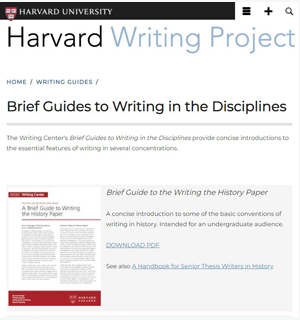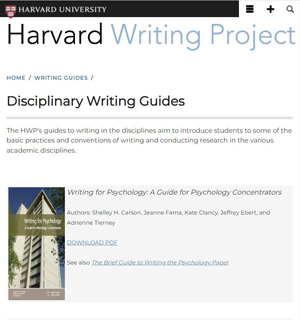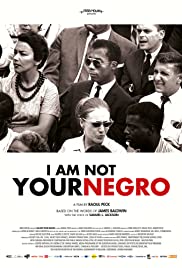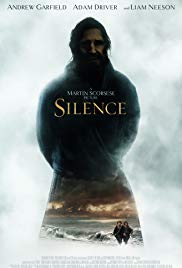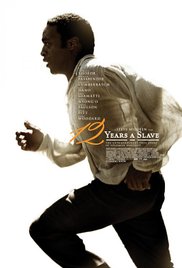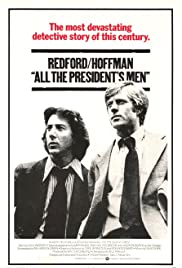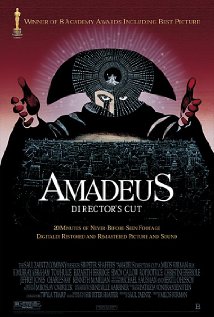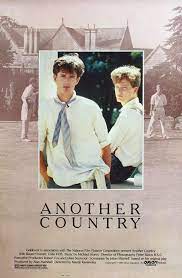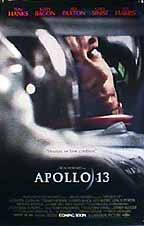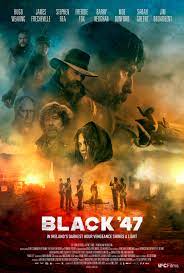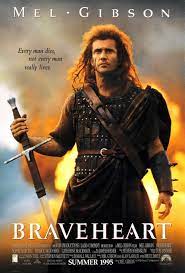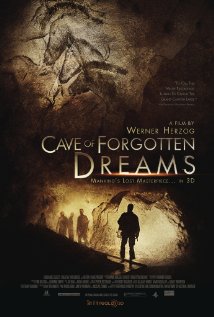Select one or more of these popular tags:
-
Best Dissertations
-
A useful collection of the best (undergraduate) dissertations from the Department of History at Bristol University organised by year.
A useful collection of the best (undergraduate) dissertations from the Department of History at Bristol University organised by year.
-
Brief Guides to Writing in the Disciplines
-
(Currently) four downloadable breif guides to writing in history, philosophy, English and psychology.
(Currently) four downloadable breif guides to writing in history, philosophy, English and psychology.
-
Harvard Writing Project
-
A collection of free downloadable pdf books explaining in detail how writing is done in different disciplines (see tags).
A collection of free downloadable pdf books explaining in detail how writing is done in different disciplines (see tags).
-
Writing in Different Disciplines
-
A collection of links to discipline-specific writing advice and help at American universities.
A collection of links to discipline-specific writing advice and help at American universities.
-
Writing in the Disciplines
-
Links to guides to writing in 24 different disciplines.
Links to guides to writing in 24 different disciplines.
-
Obama: His Story ( Signed )
-
Samanatha Anstiss
BBC correspondent Clive Myrie traces the life story of America's first black president.( Signed)
- British-Sign-Language
- History
- BSL subtitles
- 60
BBC correspondent Clive Myrie traces the life story of America's first black president.( Signed)
Stephen Fry loves Louisiana. Four months after the BP oil spill, dubbed the worst ecological disaster in the history of America, Fry returns to the Deep South together with zoologist Mark Carwardine, to see what the impact has been on the people, the vast wetlands and the species that live there.
- British-Sign-Language
- British-Sign-Language
- Natural World
- BSL subtitles
- 60
Stephen Fry loves Louisiana. Four months after the BP oil spill, dubbed the worst ecological disaster in the history of America, Fry returns to the Deep South together with zoologist Mark Carwardine, to see what the impact has been on the people, the vast wetlands and the species that live there.
Miners, nuclear scientists, politicians, environmentalists and even the City have all wrestled for control of the national electricity grid and the power that it has brought.
- British-Sign-Language
- British-Sign-Language
- Engineering
- BSL subtitles
- 60
Miners, nuclear scientists, politicians, environmentalists and even the City have all wrestled for control of the national electricity grid and the power that it has brought.
-
How to Write a History Essay
A blog post from a UCL History lecturer explaining how to write a good History essay. Much of the advice applies to other subjects too.
A blog post from a UCL History lecturer explaining how to write a good History essay. Much of the advice applies to other subjects too.
-
Khan Academy
A library of almost 3000 short videos arithmetic to physics, finance, and history with practice exercises. A very useful resource to practice your listening and note-taking skills while learning something new.
A library of almost 3000 short videos arithmetic to physics, finance, and history with practice exercises. A very useful resource to practice your listening and note-taking skills while learning something new.
-
I Am Not Your Negro
-
Raoul Peck , 2016
Writer James Baldwin tells the story of race in modern America with his unfinished novel, Remember This House.
- Films
- English subtitles
- 93
Writer James Baldwin tells the story of race in modern America with his unfinished novel, Remember This House.
-
Silence
-
Martin Scorsese , 2016
In the 17th century, two Portuguese Jesuit priests travel to Japan in an attempt to locate their mentor, who is rumored to have committed apostasy, and to propagate Catholicism.
- Films
- English subtitles
- 161
In the 17th century, two Portuguese Jesuit priests travel to Japan in an attempt to locate their mentor, who is rumored to have committed apostasy, and to propagate Catholicism.
-
12 Years a Slave
-
Steve McQueen , 2013
In the antebellum United States, Solomon Northup, a free black man from upstate New York, is abducted and sold into slavery.
- Films
- English subtitles
- 134
In the antebellum United States, Solomon Northup, a free black man from upstate New York, is abducted and sold into slavery.
-
A United Kingdom
-
Amma Asante , 2016
The story of King Seretse Khama of Botswana and how his loving but controversial marriage to a British white woman, Ruth Williams, put his kingdom into political and diplomatic turmoil.
- Films
- English subtitles
- 111
The story of King Seretse Khama of Botswana and how his loving but controversial marriage to a British white woman, Ruth Williams, put his kingdom into political and diplomatic turmoil.
-
All the President's Men
-
Alan J. Pakula , 1976
"The Washington Post" reporters Bob Woodward and Carl Bernstein uncover the details of the Watergate scandal that leads to President Richard Nixon's resignation.
- Films
- English subtitles
- 138
"The Washington Post" reporters Bob Woodward and Carl Bernstein uncover the details of the Watergate scandal that leads to President Richard Nixon's resignation.
-
Amadeus
-
Milos Forman , 1984
The incredible story of Wolfgang Amadeus Mozart, told in flashback by his peer and secret rival Antonio Salieri - now confined to an insane asylum.
- Films
- English subtitles
- 160
The incredible story of Wolfgang Amadeus Mozart, told in flashback by his peer and secret rival Antonio Salieri - now confined to an insane asylum.
-
American History X
-
Tony Kaye , 1998
Strong language and violence. A former neo-nazi skinhead tries to prevent his younger brother from going down the same wrong path that he did.
- Films
- English subtitles
- 120
Strong language and violence. A former neo-nazi skinhead tries to prevent his younger brother from going down the same wrong path that he did.
-
Amistad
-
Steven Spielberg , 1997
About a 1839 mutiny aboard a slave ship that is traveling towards the northeastern coast of America. Much of the story involves a court-room drama about the free man who led the revolt.
- Films
- English subtitles
- 152
About a 1839 mutiny aboard a slave ship that is traveling towards the northeastern coast of America. Much of the story involves a court-room drama about the free man who led the revolt.
-
Another Country
-
Marek Kanievska , 1984
Based on the life of the young Guy Burgess, who would become better known as one of the Cambridge Spies.
- Films
- English subtitles
- 90
Based on the life of the young Guy Burgess, who would become better known as one of the Cambridge Spies.
-
Apollo 13
-
Ron Howard , 1995
Three astronauts must devise a strategy to return to Earth safely after their spacecraft undergoes massive internal damage.
- Films
- English subtitles
- 140
Three astronauts must devise a strategy to return to Earth safely after their spacecraft undergoes massive internal damage.
-
Black '47
-
Lance Daly , 2018
Set in Ireland during the Great Famine, the drama follows an Irish Ranger who has been fighting for the British Army abroad, as he abandons his post to reunite with his family.
- Films
- English subtitles
- 100
Set in Ireland during the Great Famine, the drama follows an Irish Ranger who has been fighting for the British Army abroad, as he abandons his post to reunite with his family.
-
Black Hawk Down
-
Ridley Scott , 2001
123 elite U.S. soldiers drop into Somalia to capture two top lieutenants of a renegade warlord and find themselves in a desperate battle with a large force of heavily-armed Somalis.
- Films
- English subtitles
- 144
123 elite U.S. soldiers drop into Somalia to capture two top lieutenants of a renegade warlord and find themselves in a desperate battle with a large force of heavily-armed Somalis.
-
Bloody Sunday
-
Paul Greengrass , 2002
A dramatization of the Irish civil rights protest march and subsequent massacre by British troops on January 30, 1972.
- Films
- English subtitles
- 117
A dramatization of the Irish civil rights protest march and subsequent massacre by British troops on January 30, 1972.
-
Braveheart
-
Mel Gibson , 1995
Scottish warrior William Wallace leads his countrymen in a rebellion to free his homeland from the tyranny of King Edward I of England.
- Films
- English subtitles
- 178
Scottish warrior William Wallace leads his countrymen in a rebellion to free his homeland from the tyranny of King Edward I of England.
-
Brexit: The Uncivil War
-
Toby Haynes , 2019
Political strategist Dominic Cummings leads a popular but controversial campaign to convince British voters to leave the European Union from 2015 up until the present day.
- Films
- English subtitles
- 92
Political strategist Dominic Cummings leads a popular but controversial campaign to convince British voters to leave the European Union from 2015 up until the present day.
-
Bridge of Spies
-
Steven Spielberg , 2015
During the Cold War, an American lawyer is recruited to defend an arrested Soviet spy in court, and then help the CIA facilitate an exchange of the spy for the Soviet captured American U2 spy plane pilot, Francis Gary Powers.
- Films
- English subtitles
- 144
During the Cold War, an American lawyer is recruited to defend an arrested Soviet spy in court, and then help the CIA facilitate an exchange of the spy for the Soviet captured American U2 spy plane pilot, Francis Gary Powers.
-
Captain America: The Winter Soldier
-
Anthony Russo, Joe Russo , 2014
As Steve Rogers struggles to embrace his role in the modern world, he teams up with a fellow Avenger and S.H.I.E.L.D agent, Black Widow, to battle a new threat from history: an assassin known as the Winter Soldier.
- Films
- English subtitles
- 136
As Steve Rogers struggles to embrace his role in the modern world, he teams up with a fellow Avenger and S.H.I.E.L.D agent, Black Widow, to battle a new threat from history: an assassin known as the Winter Soldier.
-
Cave of Forgotten Dreams
-
Werner Herzog , 2010
Werner Herzog gains exclusive access to film inside the Chauvet caves of Southern France and captures the oldest known pictorial creations of humanity.
- Films
- English subtitles
- 90
Werner Herzog gains exclusive access to film inside the Chauvet caves of Southern France and captures the oldest known pictorial creations of humanity.
-
Cold Mountain
-
Anthony Minghella , 2003
In the waning days of the American Civil War, a wounded soldier embarks on a perilous journey back home to Cold Mountain, North Carolina to reunite with his sweetheart.
- Films
- English subtitles
- 154
In the waning days of the American Civil War, a wounded soldier embarks on a perilous journey back home to Cold Mountain, North Carolina to reunite with his sweetheart.
-
Comrades
-
Bill Douglas , 1986
The story of "The Tolpuddle Martyrs". A group of 19th century English farm labourers who formed one of the first trade unions and started a campaign to receive fair wages.
- Films
- No subtitles
- 180
The story of "The Tolpuddle Martyrs". A group of 19th century English farm labourers who formed one of the first trade unions and started a campaign to receive fair wages.


